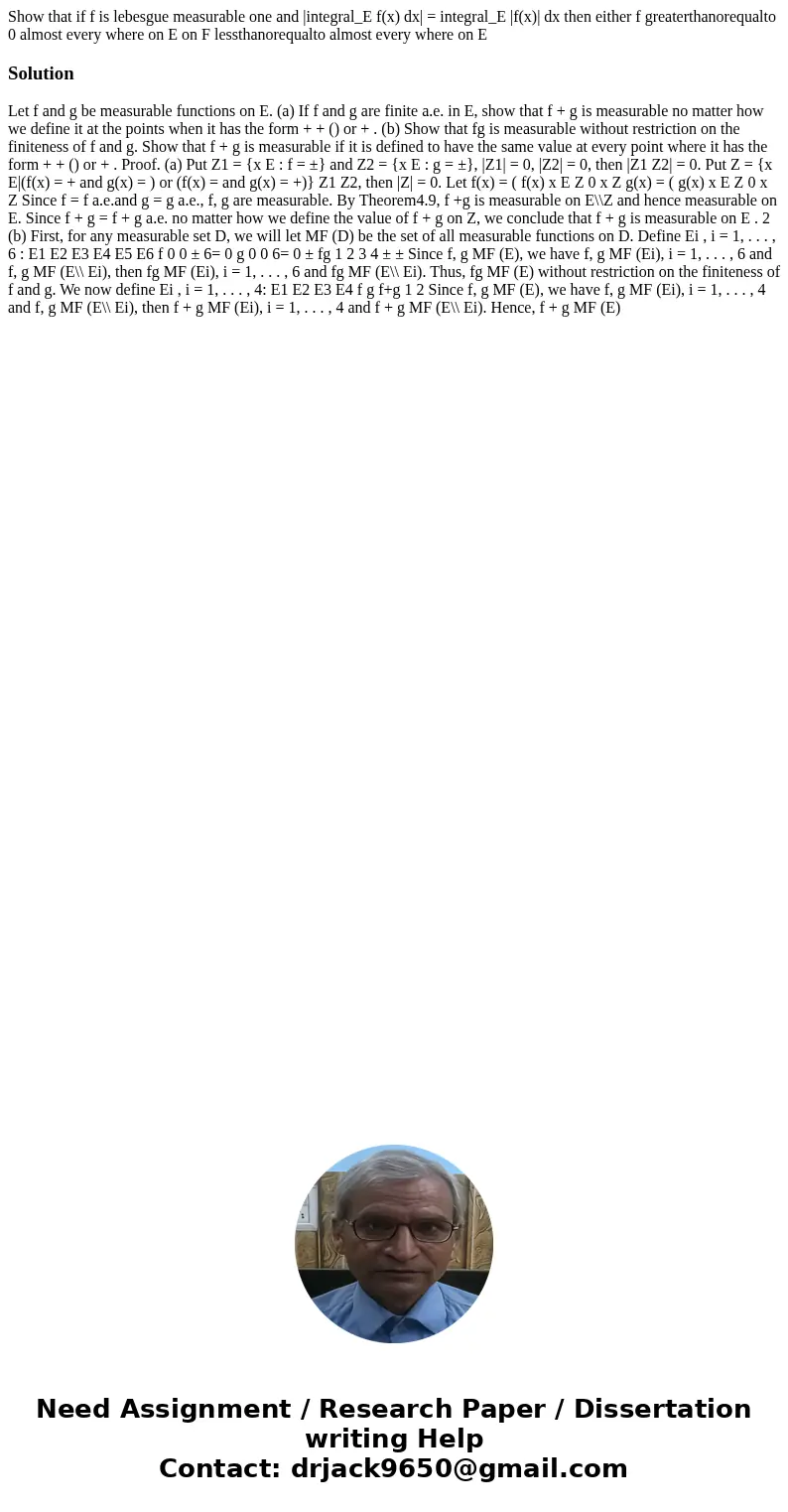Show that if f is lebesgue measurable one and integralE fx d
Solution
Let f and g be measurable functions on E. (a) If f and g are finite a.e. in E, show that f + g is measurable no matter how we define it at the points when it has the form + + () or + . (b) Show that fg is measurable without restriction on the finiteness of f and g. Show that f + g is measurable if it is defined to have the same value at every point where it has the form + + () or + . Proof. (a) Put Z1 = {x E : f = ±} and Z2 = {x E : g = ±}, |Z1| = 0, |Z2| = 0, then |Z1 Z2| = 0. Put Z = {x E|(f(x) = + and g(x) = ) or (f(x) = and g(x) = +)} Z1 Z2, then |Z| = 0. Let f(x) = ( f(x) x E Z 0 x Z g(x) = ( g(x) x E Z 0 x Z Since f = f a.e.and g = g a.e., f, g are measurable. By Theorem4.9, f +g is measurable on E\\Z and hence measurable on E. Since f + g = f + g a.e. no matter how we define the value of f + g on Z, we conclude that f + g is measurable on E . 2 (b) First, for any measurable set D, we will let MF (D) be the set of all measurable functions on D. Define Ei , i = 1, . . . , 6 : E1 E2 E3 E4 E5 E6 f 0 0 ± 6= 0 g 0 0 6= 0 ± fg 1 2 3 4 ± ± Since f, g MF (E), we have f, g MF (Ei), i = 1, . . . , 6 and f, g MF (E\\ Ei), then fg MF (Ei), i = 1, . . . , 6 and fg MF (E\\ Ei). Thus, fg MF (E) without restriction on the finiteness of f and g. We now define Ei , i = 1, . . . , 4: E1 E2 E3 E4 f g f+g 1 2 Since f, g MF (E), we have f, g MF (Ei), i = 1, . . . , 4 and f, g MF (E\\ Ei), then f + g MF (Ei), i = 1, . . . , 4 and f + g MF (E\\ Ei). Hence, f + g MF (E)

 Homework Sourse
Homework Sourse